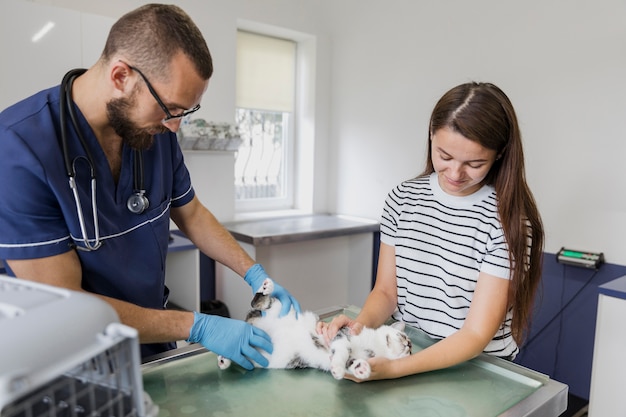When Should You Worry About Your Pet’s Limp? Understanding the Causes of Limping in Pets and the Importance of Orthopedic Assessment
If you’ve noticed your dog or cat limping, you’re not alone—this is one of the most common reasons pet owners contact Pets R Us Aurora. Whether your pet’s limp appeared suddenly after a spirited romp in the yard or it has developed gradually over time, it’s natural to feel concerned and wonder if a visit to your veterinarian is necessary. Some limps resolve on their own with rest, while others signal more serious orthopedic concerns that require prompt attention from a veterinary team. Knowing when to seek help can make all the difference in your pet’s comfort, recovery, and long-term mobility.
In this blog, we’ll explore the most frequent causes of limping in pets, explain how our veterinary professionals at Pets R Us Aurora diagnose and treat limping, and help you understand when an orthopedic assessment is recommended. You’ll learn what signs to watch for, what you can do at home, and how our comprehensive approach to pet orthopedic assessment in Aurora supports your pet’s healing every step of the way. If you’re searching for a "vet near me" to address your concerns about limping or lameness, our clinic is here to help your pet move comfortably again.
Recognizing Limping in Dogs and Cats: When Should You Be Concerned?
Limping, also known as lameness, can appear in a variety of ways. Some pets may suddenly refuse to bear weight on a leg, while others develop a subtle, intermittent limp that seems to come and go. Occasionally, limping is accompanied by other symptoms that can help you and your veterinarian determine the underlying cause.
Key symptoms to watch for include favoring one leg over the others, reluctance to exercise or climb stairs, vocalizing when moving or being touched, swelling or heat in a specific joint, and visible wounds or abrasions. Additionally, you might notice your pet licking or chewing at the affected limb, or holding it up entirely off the ground. Acute limping that appears suddenly—especially after trauma, a fall, or rough play—often signals injury to the bones, joints, or soft tissues. Chronic limping, which develops over weeks or months, could indicate underlying orthopedic disease such as arthritis, hip dysplasia, or ligament injuries.
While some mild limps improve with rest and time, there are certain situations where immediate veterinary care is crucial. These include severe or non-weight-bearing limps, obvious fractures or dislocations, wounds with active bleeding, or signs of intense pain such as crying out, aggression when touched, or refusal to move. In these scenarios, timely evaluation by a veterinarian in Aurora can make a critical difference in your pet’s outcome.
Common Causes of Limping in Pets: What’s Behind Your Pet’s Lameness?
Understanding the possible causes of limping in pets is essential for prompt and effective treatment. The reasons for lameness are wide-ranging, from minor soft tissue injuries to complex orthopedic conditions that require advanced diagnostics and care.
Acute injuries often result from slips, trips, or high-energy play. Sprains, strains, ligament tears, and even fractures can all cause sudden limping. For example, a torn anterior cruciate ligament (ACL) in a dog’s knee is a frequent culprit of sudden hind limb lameness, while patellar luxation (kneecap dislocation) is more common in smaller breeds. In cats, jumping from heights can lead to soft tissue trauma or joint injuries.
Chronic limping is frequently linked to conditions such as osteoarthritis, hip dysplasia, or degenerative joint disease. These issues may develop as pets age or due to genetic predisposition, and they often result in stiffness, difficulty rising, or reduced activity levels. Other causes include bone infections, nerve injuries, and tick-borne diseases that affect the joints. It’s important to remember that sometimes, what seems like a minor limp can actually be a sign of a more serious underlying condition.
If you are searching for "pet orthopedic assessment in Aurora," our team is equipped to diagnose both acute and chronic causes of limping. By performing a thorough physical examination and utilizing advanced imaging, we can identify the root cause and develop a tailored treatment plan for your pet.
The Importance of Professional Pet Orthopedic Assessment in Aurora
When your pet arrives at Pets R Us Aurora with a limp, our veterinary professionals begin with a detailed history and physical examination. We will ask about when the limp began, whether it has changed over time, and any recent injuries or incidents you have observed. During the exam, we carefully palpate the limbs, check for swelling or instability, and observe your pet’s gait.
To further assess the injury, diagnostic tools such as digital radiology and ultrasound are often used. These allow our veterinarians to detect fractures, dislocations, ligament tears, and signs of arthritis or joint disease. In some cases, more advanced diagnostics or orthopedic consultation may be recommended if the cause is complex or not immediately apparent.
When a specific orthopedic concern is identified—such as a fracture, patellar luxation, or ACL tear—our clinic offers a range of specialized services to support your pet’s recovery. For example, we provide veterinary care for patellar luxation in pets, as well as diagnosis and management of hip joint issues in pets. If surgery is necessary, our veterinarians will guide you through every step, from preoperative planning to post-surgical rehabilitation.
Choosing a clinic that specializes in pet orthopedic assessment in Aurora ensures your pet receives the most accurate diagnosis and effective treatment possible. Our comprehensive approach includes pain management, physical therapy recommendations, and regular follow-up to monitor progress and prevent complications.
Treatment Options for Limping Pets: What to Expect from Your Veterinarian
Treatment for limping depends on the underlying cause, severity, and your pet’s overall health. Mild soft tissue injuries may respond well to rest, restricted activity, and anti-inflammatory medications prescribed by your veterinarian. For more serious orthopedic injuries, such as ligament tears or joint dislocations, surgical intervention might be recommended to restore function and prevent long-term complications.
Our veterinary team at Pets R Us Aurora will discuss treatment approaches with you in detail, which may include surgical repair, splinting or casting, weight management, and pain control. For example, a dog with an ACL injury may benefit from surgical solutions for anterior cruciate ligament injuries in pets, while a cat with hip dysplasia might require a combination of medication, physical therapy, and lifestyle modifications.
Throughout your pet’s treatment, our veterinarians focus on comfort, safety, and a personalized rehabilitation plan. We work closely with you to monitor progress, adjust the treatment plan as needed, and ensure your pet returns to an active, happy lifestyle as soon as possible. If you’re searching for "pet orthopedic assessment near me" or "pet orthopedic assessment Aurora," our experienced team is here to guide you and your pet every step of the way.
Home Care and Prevention: Supporting Your Pet’s Recovery
While professional veterinary care is essential for diagnosing and treating the causes of limping in pets, there are steps you can take at home to support your pet’s recovery and prevent future injuries. Rest and restricted activity are key during the initial phase after an injury. Providing a soft, comfortable resting area, limiting jumping or rough play, and using ramps or stairs for pets with mobility issues can all help reduce strain on healing limbs.
Weight management is another important preventive measure, as excess weight places additional stress on joints and can exacerbate conditions like hip dysplasia or arthritis. A balanced diet, regular low-impact exercise, and routine wellness exams are crucial for maintaining your pet’s musculoskeletal health. For pets with chronic orthopedic conditions, your veterinarian may recommend joint supplements, physical therapy, or alternative therapies to enhance mobility and comfort.
If you’re ever unsure about your pet’s limp, or if symptoms persist despite rest, it’s always best to schedule an appointment for a veterinary evaluation. Early intervention can help prevent minor injuries from becoming serious problems and ensure your pet enjoys the highest quality of life.
When to Seek Veterinary Care for Your Limping Pet in Aurora
It can be difficult to know when a limp is an emergency and when it’s safe to wait. Immediate veterinary care is warranted if your pet cannot bear any weight on a limb, shows signs of severe pain, has visible swelling or deformity, or if the limp is accompanied by other worrisome symptoms such as fever, lethargy, or loss of appetite. Likewise, limps that persist for more than 24-48 hours, worsen over time, or recur frequently should always be evaluated by a veterinarian near you.
At Pets R Us Aurora, we encourage all pet owners in Aurora and surrounding communities to reach out whenever they are concerned about their pet’s mobility or comfort. Our veterinary professionals are dedicated to providing comprehensive orthopedic care, ensuring your pet receives the attention they need to recover safely and quickly. Searching for "quality vet near me" or "pet orthopedic assessment in Aurora" can connect you with our experienced team for timely, compassionate support.
Trust Pets R Us Aurora for Expert Pet Orthopedic Assessment and Care
Limping in pets is never something to ignore. From simple sprains to complex orthopedic injuries, the causes of limping in pets are varied and sometimes serious. Early recognition, accurate diagnosis, and professional care are the keys to helping your dog or cat recover and thrive.
At Pets R Us Aurora, our veterinarians are committed to providing the most advanced pet orthopedic assessment in Aurora and to supporting you and your pet with empathy and expertise. If your pet is limping, don’t wait—schedule an appointment with our veterinary team today. You can reach us at (720) 802-2353 or visit us at 10695 E Mississippi Ave, Aurora, CO 80012. Whether you’re looking for a "vet near me" or need specialized orthopedic care for musculoskeletal issues in pets, our veterinary professionals are here for every step of your pet’s recovery journey.
Remember, your pet’s comfort and well-being are our top priorities. If you notice any signs of limping or lameness, don’t hesitate to contact us for guidance on the best next steps. For additional resources on pet health and mobility, visit reputable sources such as the American Veterinary Medical Association (AVMA) or the American Animal Hospital Association (AAHA).
Disclaimer: This article is for informational purposes only and is not a substitute for professional veterinary diagnosis or treatment. If your pet is limping or in pain, please schedule an appointment with your veterinarian for a thorough evaluation.



















